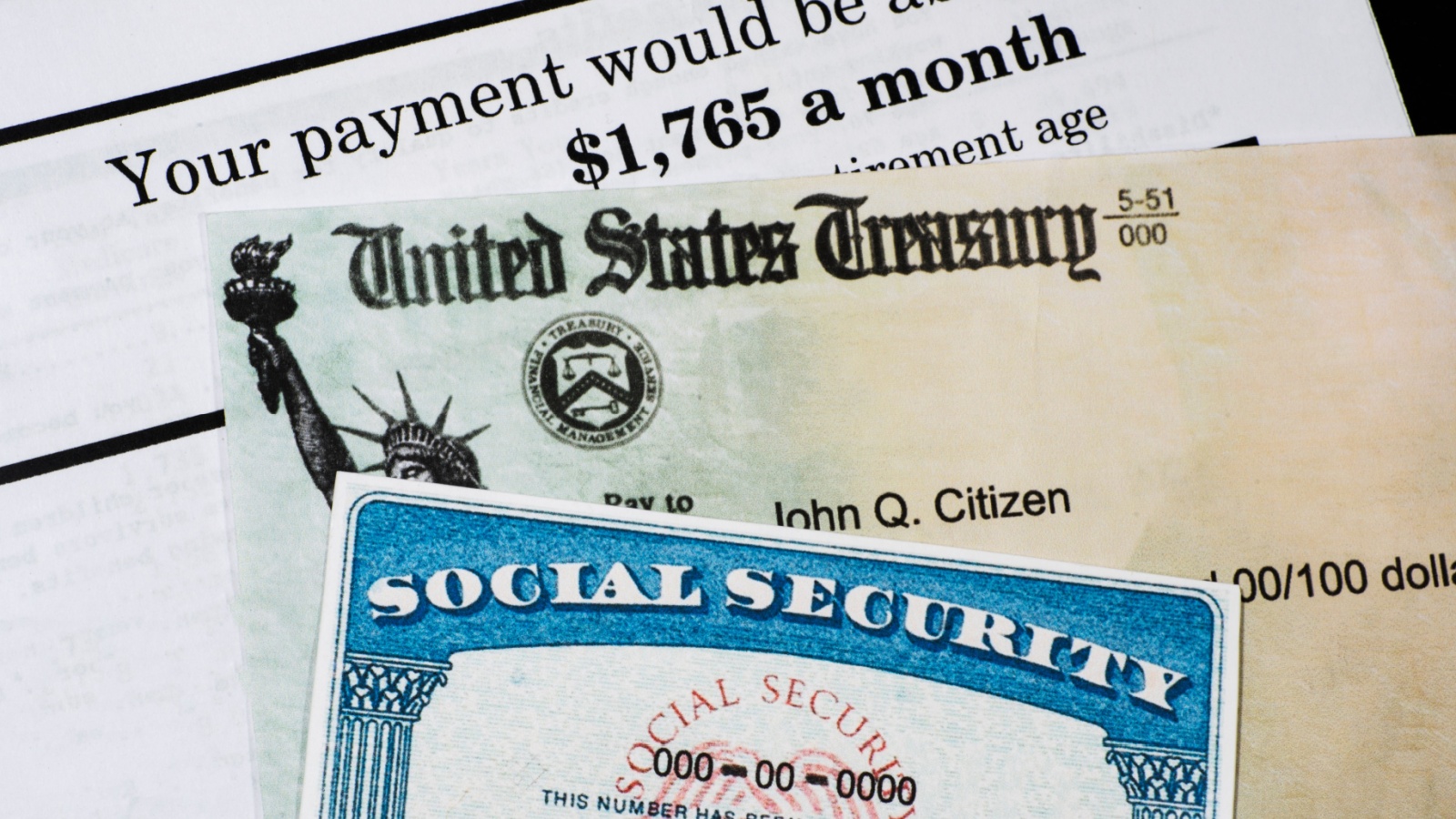Planning for retirement can be tricky, and it’s easy to make mistakes along the way. Some financial decisions might seem harmless or even beneficial in the short term, but they could seriously impact your long-term retirement goals. Here are 18 moves to watch out for as you plan for your golden years.
1. Cashing Out Your 401(k) Early

Tapping into your 401(k) before retirement might seem like a quick fix for financial troubles, but it can be a costly mistake. Early withdrawals often come with hefty penalties and taxes. You’ll lose out on potential growth and compound interest. This decision can significantly reduce your retirement savings, leaving you with less money when you need it most.
2. Neglecting to Create a Budget

Flying blind with your finances is a surefire way to derail your retirement plans. Without a budget, you might overspend and undersave. You’ll have no clear picture of where your money goes each month. Creating and sticking to a budget helps you track expenses, identify areas to cut back, and ensure you’re setting aside enough for retirement.
3. Putting Off Saving for Retirement

Procrastination is the enemy of a comfortable retirement. The longer you wait to start saving, the less time your money has to grow through compound interest. You’ll need to save much more later to catch up. Starting early, even with small amounts, can make a huge difference in your retirement nest egg.
4. Prioritizing Your Children’s Education Over Retirement

It’s natural to want to help your kids with college costs, but not at the expense of your retirement. Unlike education, retirement can’t be funded with loans or scholarships. Your kids have their whole lives ahead of them to pay off student loans. Prioritizing your retirement ensures you won’t become a financial burden on your children later in life.
5. Ignoring the Power of Compound Interest

Compound interest is like a snowball rolling downhill, growing bigger over time. Many people underestimate its power and miss out on significant growth. Starting to save early and regularly can lead to substantial gains over decades. Even small increases in your savings rate can have a big impact thanks to compound interest.
6. Carrying High-Interest Debt Into Retirement

High-interest debt can eat away at your retirement savings faster than you might realize. Credit card balances and personal loans with steep interest rates can quickly balloon out of control. Paying off high-interest debt should be a priority before retirement. It’s much harder to tackle debt on a fixed income.
7. Underestimating Healthcare Costs

Many people drastically underestimate how much they’ll spend on healthcare in retirement. Medical expenses can quickly deplete your savings if you’re not prepared. Consider factoring in potential long-term care costs and exploring options like long-term care insurance. Saving specifically for healthcare expenses can help protect your retirement nest egg.
8. Relying Too Heavily on Social Security

While Social Security is an important part of retirement income for many, it shouldn’t be your only source of funds. The average Social Security benefit may not be enough to maintain your lifestyle. It’s crucial to have additional savings and investments to supplement Social Security. Diversifying your retirement income sources provides more financial security.
9. Not Diversifying Your Investments

Putting all your eggs in one basket is risky, especially when it comes to retirement savings. Overinvesting in a single stock or sector leaves you vulnerable to market fluctuations. A well-diversified portfolio can help protect your savings from major losses. Spread your investments across different asset classes, industries, and geographic regions to reduce risk.
10. Misunderstanding Your Risk Tolerance

Investing too conservatively or too aggressively can both harm your retirement plans. Being too conservative might mean your money doesn’t grow enough to keep up with inflation. Being too aggressive could lead to significant losses close to retirement. Assess your risk tolerance honestly and adjust your investment strategy accordingly as you approach retirement.
11. Borrowing From Your 401(k)

While borrowing from your 401(k) might seem like a good idea in a pinch, it can have serious consequences. You’ll miss out on potential growth while the money is out of your account. If you leave your job, you might have to repay the loan quickly or face penalties. Consider other options before tapping into your retirement savings.
12. Retiring Too Early

Retiring before you’re financially ready can strain your savings. You’ll have fewer years to save and more years to spend in retirement. Early retirement also means missing out on peak earning years and potential employer contributions. Carefully assess your financial situation before deciding to retire early.
13. Underestimating Your Retirement Expenses

Many people assume they’ll spend less in retirement, but that’s not always the case. Travel, hobbies, and healthcare costs can add up quickly. Inflation can also erode your purchasing power over time. Create a realistic retirement budget that accounts for all potential expenses, including fun and leisure activities.
14. Not Accounting for Inflation

Inflation can significantly impact your retirement savings over time. What seems like a substantial nest egg now might not stretch as far in 20 or 30 years. Factor in the effects of inflation when planning your retirement savings goals. Consider investments that have the potential to outpace inflation.
15. Failing to Plan for Taxes in Retirement

Taxes don’t disappear when you retire. Different retirement accounts have different tax implications. Traditional 401(k) and IRA withdrawals are taxed as ordinary income. Failing to plan for taxes can lead to unpleasant surprises and reduce your retirement income. Consider tax-diversification strategies to manage your tax burden in retirement.
16. Cosigning Loans for Others

Cosigning a loan for a family member or friend might seem like a kind gesture, but it can put your retirement at risk. If the primary borrower defaults, you’re on the hook for the payments. This unexpected expense could derail your retirement plans. Think carefully before taking on someone else’s debt responsibility.
17. Ignoring Estate Planning

Estate planning isn’t just for the wealthy. Without a proper plan, your assets might not be distributed as you wish after your death. This could lead to family conflicts and unnecessary taxes. Estate planning also includes important documents like healthcare directives. Don’t leave your loved ones to navigate these issues without guidance.
18. Falling for Get-Rich-Quick Schemes

The promise of quick and easy money can be tempting, especially if you’re worried about retirement savings. However, get-rich-quick schemes often lead to financial losses. They can wipe out your hard-earned savings in an instant.
14 Pieces of Outdated Money Advice That Can Derail Your FIRE Plan

FIRE – Financial Independence, Retire Early. That’s the dream, right? Quit the rat race and live life on our own terms. It’s totally doable. Plenty of people join the FIRE movement and manage to retire pretty quickly. And there’s a LOT of advice out there on how to do it. Sadly, much of the advice is outdated or just plain bad.
12 Money Mistakes That Can Leave You Vulnerable in a Crisis

In times of uncertainty, financial stability is more crucial than ever. While prepping for physical emergencies is vital, don’t overlook financial prepping. Avoiding these common money mistakes can help make sure you’re in a stronger position to weather any storm.
Surviving the Crash: 17 Hot Takes on Crypto in a Post-Collapse World

With recent global unrest and economic uncertainties, many people are starting to worry about the stability of our money. They’re looking for new options like cryptocurrencies. Using digital money might sound strange, but it’s becoming more common. Big names like Bitcoin and Ethereum are leading the way. This article will look at how cryptocurrency could change things in a shaky economy. We’ll discuss the good and bad sides of using digital money. Get ready to learn about the crypto world and how it might affect our financial future!

